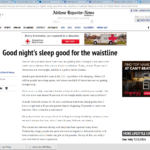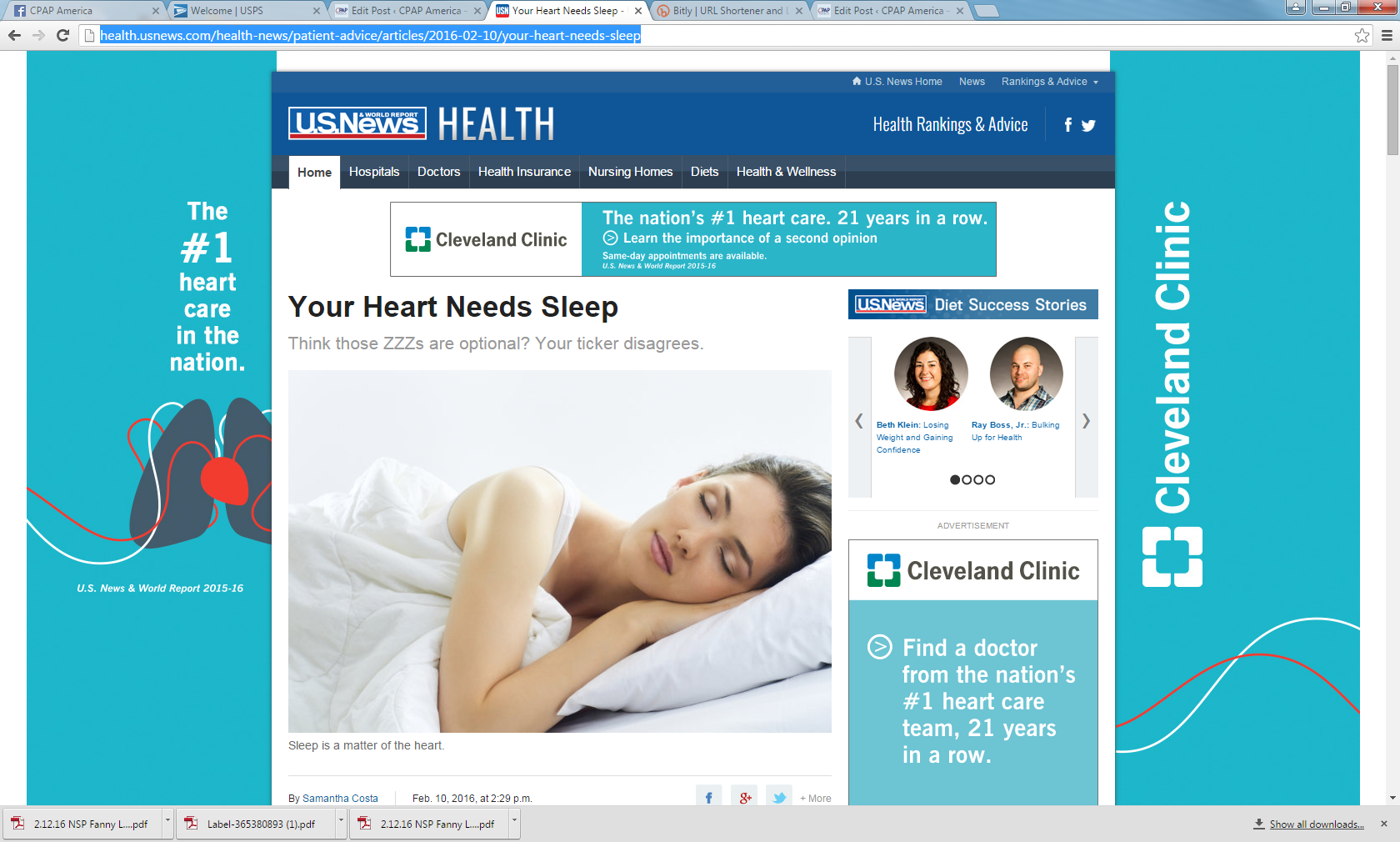Tag Archives: obesity

Sleep Well And It Could Help Your Waistline
Great sleep = Great Waistline?
You are likely to have heard Americans are getting fatter. Eating fast and processed foods and a sedentary lifestyle are likely contributors. Today, almost 70 percent of Americans are overweight, and this is a public health disaster. Another prevalent health issue in the U.S. is problems with sleeping. Almost 20 million people have sleep apnea, and about one-third of Americans are not getting enough sleep.

Can you use sleep as part of a weight-loss plan?
Getting enough sleep is essential to successful weight loss. Sleep is often overlooked by dieters, but a wealth of scientific research supports the theory that people who get little sleep are at increased risk of being overweight or obese. As a knock-on effect, poor sleep can lead people to be less active and snack more, often reaching for sugary or fatty foods as a pick-me-up. Here are a few tips from the doctor and nutritionist Laurence Plumey to improve the chances of successful weight loss.

Does Your Heart Need Sleep? You Bet It Does
Heart Health Benefits From Good Sleep
If you find yourself hitting snooze more often than not, let the sound of that merciless alarm be a warning that you aren’t getting enough sleep. It’s not just about feeling rested – it’s a matter of the heart. Getting less sleep than recommended on a regular basis could spell future heart disease or even death.

Sleep loss could be the reason you’re feeling cranky
A lesson in sleep loss
The Centers for Disease Control and Prevention (CDC) call insufficient sleep a “public health problem” and estimate that 30% of Americans get less than 6 hours of sleep a night.
Lack of sleep is linked to motor vehicle crashes, industrial disasters, and medical and other occupational errors. Diseases linked to sleep insufficiency include hypertension, diabetes, depression, obesity and cancer.
Contributing factors include round-the-clock access to technology and work schedules as well as disorders such as insomnia or obstructive sleep apnea.
Until now, it has not been clear what causes the emotional impairments triggered by sleep loss.

